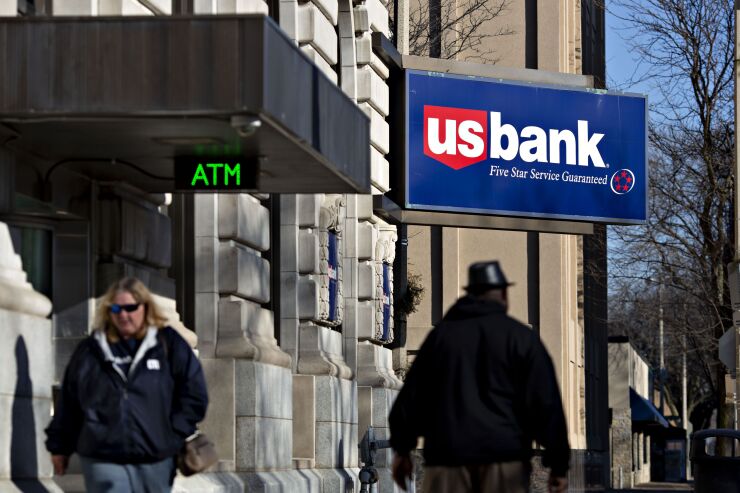
The majority of consumers prefer getting their credit card rewards in the form of cold, hard cash — especially to
The Minneapolis-based banking giant recently created a permanent new rewards-redemption option for customers of its Altitude Go Visa credit cards to redeem points for a monetary contribution to one of eight national nonprofit organizations, with U.S. Bank matching the dollar value of each contribution.
U.S. Bank's research and experience showed that credit card rewards users will take action when they see a way for their daily payment card transactions to make a difference, said Chris Roncari, senior vice president of product and experience for retail payment solutions at U.S. Bank's credit and debit card business.
For example, when U.S. Bank last year became one of the first issuers to give customers the same rewards rate for
"We added EV charging because we knew climate change is a big concern, and then we went looking for other ways credit card users can amplify causes they're passionate about," Roncari said.
U.S. Bank's focus on consumers' personal interests aligns with
Consumers in a recent survey gave banks low marks when it comes to designing products and services that resonate with users' behavioral and intellectual motivations. Banks also earned low scores for not tapping into consumers' emotional and sensorial expectations. Arizent and the creative experience agency Monigle surveyed 5,500 consumers in March 2023.
U.S. Bank isn't the first card provider playing up the option to donate rewards to charitable causes. American Express enables credit card users to donate rewards to various nonprofits through a partnership with JustGiving.com; Discover Financial Services offers a
The $700 billion-asset U.S. Bank aimed to set its program apart by making charitable donations a year-round option for rewards-point redemption, with a carefully selected list of causes to choose from, Roncari said.
Cardholders can choose to donate their rewards to the American Red Cross, Eco Challenge, Habitat for Humanity, Human Rights Campaign, National Coalition for Asian Pacific American Community Development, Operation Homefront, United Negro College Fund and United Way. U.S. Bank made its picks from relationships the bank already had, along with internal research showing bank customers' particular interests.
Simultaneously, U.S. Bank announced that all the Visa and Mastercard credit cards it issues under the Altitude Go brand will be made of
"Working within the regulations and financial arrangements we have today, as we think about marketing and card rewards strategies we're always working to understand what problems consumers are trying to solve," Roncari said.
The Silver Spring, Maryland-based card issued by New York City-based Piermont Bank is designed to help users offset climate change by taking specific actions to reduce environmental impact, such as using public transportation and shopping at thrift stores.
FutureCard gives users 5% cash back on purchases made at 50,000 U.S. merchants that its parent company, Future, has vetted for their climate-friendly impact. Users may get up to 10% back at retail marketing partners, FutureCard touts on its website, and 1% on all other purchases.
Most recently FutureCard introduced the 10% cash-back option for users of Arcadia Solar, a leading community solar power provider. Users in 13 states may qualify for the cash-back option if they use their card to pay their household electric bill through Arcadia Solar.
Next FutureCard plans to add cash-back rewards for customers who use the card to make contributions to nonprofits, Warnholz said.
"We're in the process now of exploring the kind of green, climate-friendly causes that make sense for the brand," Warnholz said.
FutureCard doesn't disclose its total number of customers, but its base has expanded tenfold this year, primarily by word of mouth, according to Warnholz.
"What consumers like is being rewarded for taking some action in their daily life that's in line with their values, so we keep working to expand the ways they can do that with a card payment," he said.






